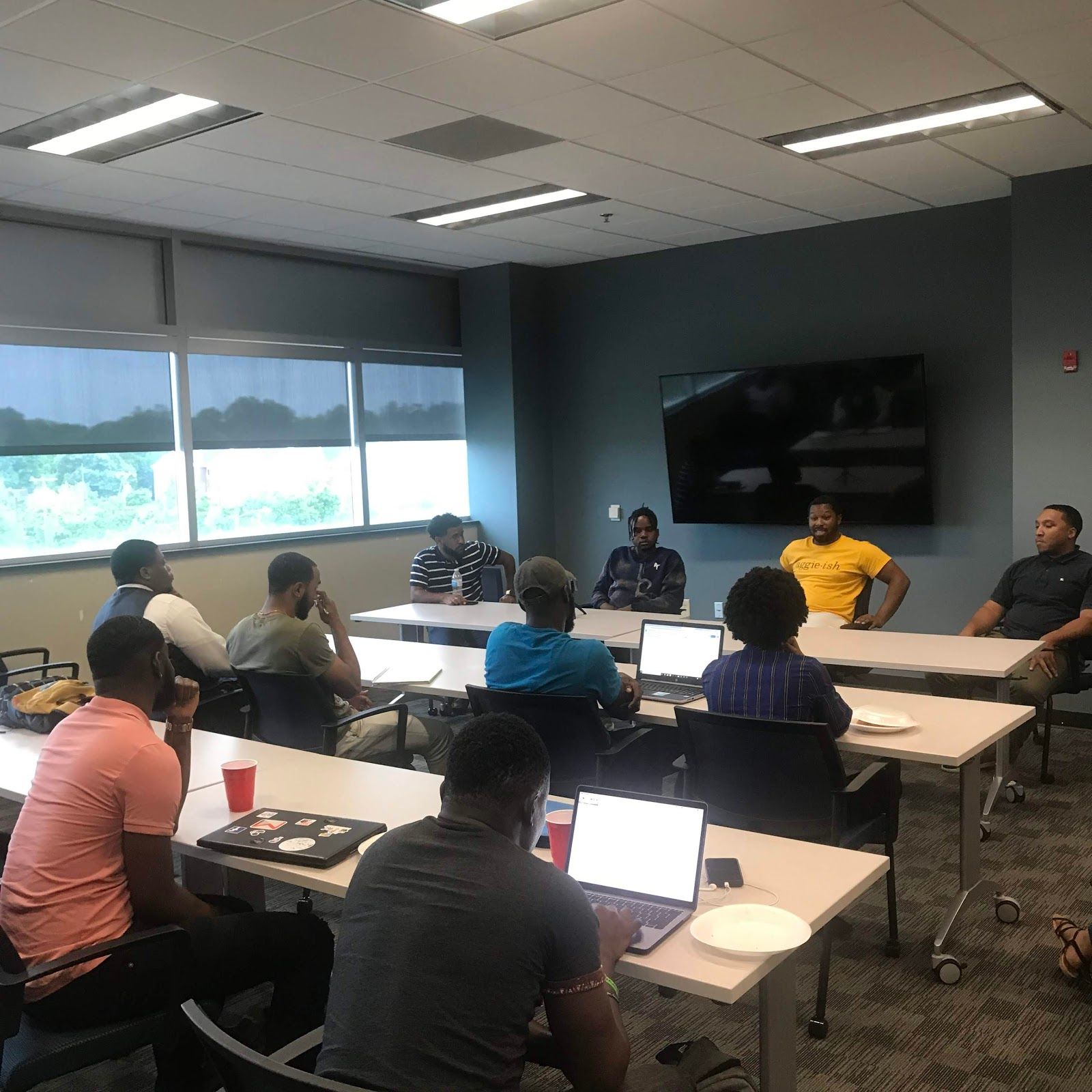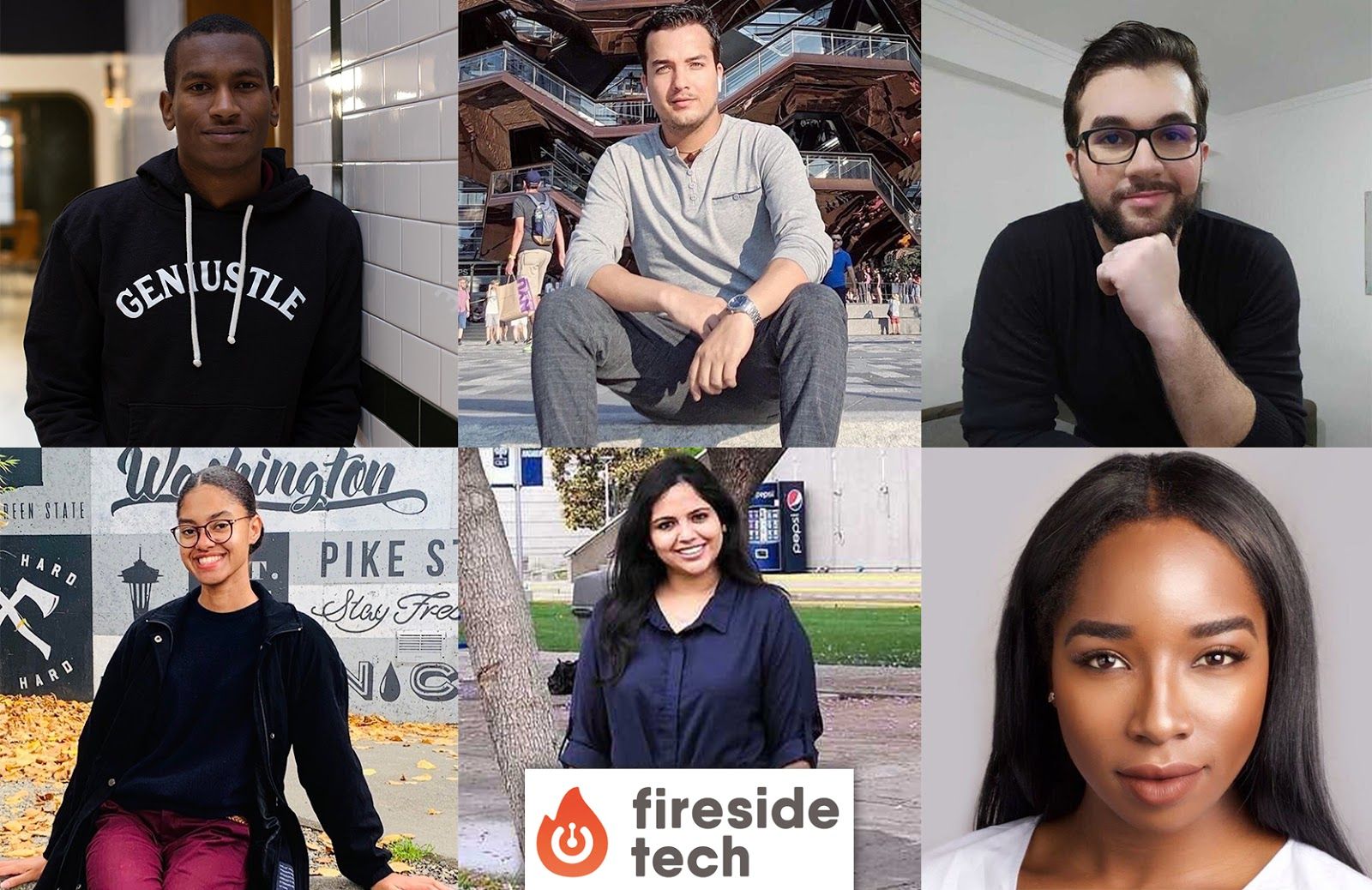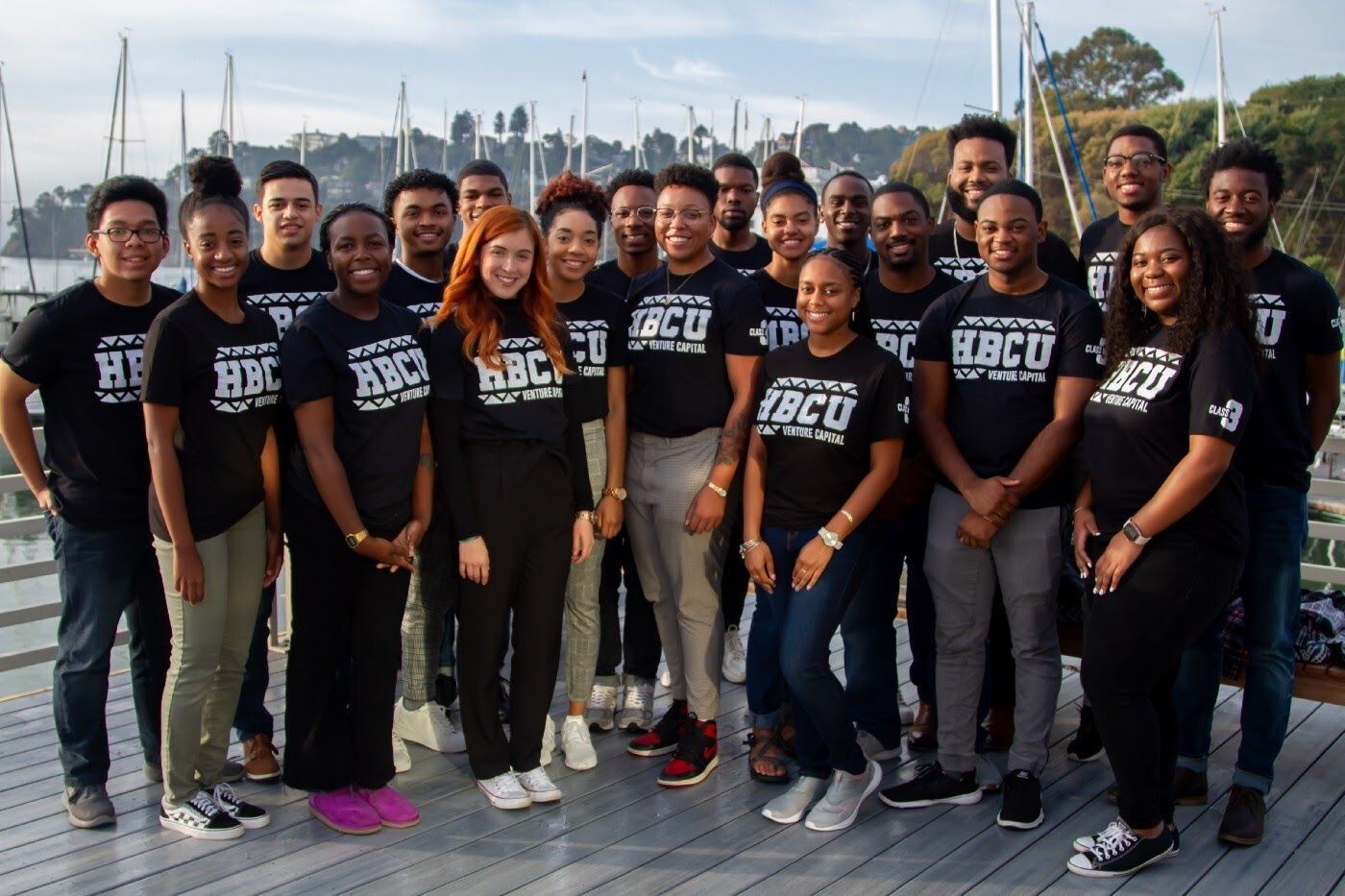The world of venture capital has long been outside the realm of understanding for entrepreneurs of color, largely because it is a very insular world. There’s a certain language that the fund managers and founders speak. There’s also a certain skill set required to get into rooms with decision-makers that can change the course of your business with a single check.
Despite the barrier to entry for starting most businesses being lowered, many founders find themselves needing extra capital to launch or scale their venture. Unfortunately, minorities are grossly underrepresented in terms of venture dollars invested, and venture capitalists themselves.
While much of the challenge with securing funding may come from intentional discriminatory practices, I believe a large part of the racial and gender imbalance comes from the lack of representation in the pipeline itself.
In 2018, only 4% of venture capital investors were Black and Hispanic, according to data compiled by Richard Kerby at Equal Ventures. Along with the shortage of minority fund managers comes a shortage of opportunities for minority-owned businesses to be properly capitalized.
That is why the work of organizations like HBCUvc is so important.
HBCUvc actively re-imagines the innovation economy by developing the next generation of venture capital leaders in communities where entrepreneurs face barriers accessing capital. Our work begins at one of the most overlooked avenues for Black innovation (HBCUs) and extends to cities where stark inequalities and implicit biases continue to widen the racial wealth gap.
I spoke with Fireside Tech Solutions about their experience being HBCUvc fellows and the work they’re doing to fix the racial imbalance in venture capital.
Talk to me about your company and describe the space you're looking to fill.
Dorian Holmes (DH): We create platforms for entrepreneurs and business owners to develop digital resilient businesses. We currently do this by providing app, website and automation services and other software solutions. We use our expertise to help understand how to develop these solutions. We help them develop a minimum viable product (MVP) by offering a design thinking workshop. In this design thinking workshop, we walk through their business and help them understand how they can apply these technical solutions. A lot of people don’t understand the tech industry, so we use our expertise to provide solutions and help them understand how to apply it. This helps their businesses run more efficiently online.
Dakota Price (DP): What we do with HBCUvc has helped us support the founders because sometimes, we work with people who have lifestyle businesses or businesses models that really aren’t scalable. But, we come across people who are able to be potentially backed by venture capital. Without going through the fellowship we’re in, we wouldn’t be able to see that potential or really know how to support them. For example, through the fellowship we’re able to connect them with people who may be able to invest or help improve their pitching. It’s not only a service we provide, it’s the knowledge we have that helps them in ways other tech companies may not offer.
DH: There's not many companies like ours that focus on the Black community. All of our clients have been Black or minorities so we’re definitely sticking to what our mission was and making them a priority. We’re not just trying to get money, we're treating them as partners.
How does the VC Lab and Fund prepare you to step into the role of fundraisers both on the venture capitalist side and founder side?
DH: As an HBCUvc fellow, we were searching for potential startups to fund, and a fellow may be a founder too by using their network. We have a watch list of these entrepreneurs so when we have opportunities like an incubator, we can invite them. I was mentoring a startup, and four or five of my colleagues were also mentoring a startup where we would sit down and help them based on our specific expertise.
That is a glimpse of what our goal is—to support Black startups that only make up 1% of the market and get more people in the VC industry. It's moreso about funding in general. It doesn't have to be VC, it just needs to be able to help them grow their business. Fireside Tech is doing that by supporting students on our campuses. We know they might not have much funding right now, but if we think they have a good idea, we’ll help them develop an MVP—sometimes for equity, and sometimes out the kindness of our hearts. We’ll either refer them to another developer who can build it or let them know which investors to talk to. We support them one way or another by building a pipeline of resources to help them be successful.
DP: Since Dorian is a Class-2 fellow, he was involved with the actual HBCUvc venture lab. I am a Class-3 fellow, so I was more involved with the things that happen on the campus at North Carolina A&T. So, you have the main HBCU lab, but other regions have their own individual incubator they’re working on. An important thing HBCUvc does is not pour all of its resources into one program. It gives us all a framework to recreate those things on our own campuses, so it’s more tailored to the people in our region. Dorian and the other Class-2 fellows were working with people who weren’t necessarily in their ecosystem. However, when we have the Class-3 fellows working with the people at our school, we can create programming that helps them specifically and provide them with resources in our area.
DH: To add, my first year was focused on learning about VC investing. We also networked with the small amount of Black VCs in the industry and we had summits where we were participating in workshops and learning from these people. So, we were first educated before being out in the field. At the beginning of my second year, we applied it to our ecosystems. We all mapped out the resources in our ecosystem whether it was other incubators nearby or programs providing courses to educate people on how to be a good founder. And once we mapped out the resources in the area, we focused on how to create a startup ecosystem on our campus.
My idea was to start events on our campus in which HBCUvc could support. This was a student-led program. If the students didn’t lead the talks on campus, the impact wouldn’t have been as significant. That's another aspect of what makes HBCUvc different from a lot of organizations—it's student-led and action-oriented.

What are the fellowship tiers and what changes from year to year?
DP: The fellowship includes two years of programming created for you. But there are fellows from Class-1 that are still involved. In terms of the tiers, during your first year, you are focused on building your knowledge of this space through modules and the planning of your capstone projects. If you have a fellow on your campus that has gone through the process, you can get help from them to start on the programming or start planning events to support on-campus founders. Your main focus is to learn how to support them. Your second year is about sourcing deals and providing direct support from what you learned in your first year. That’s what Dorian is more focused on this year.
DH: In a broad sense, the first year is focused on learning, studying and being a mentee. The second year you’re able to be a mentor if you want for the next class coming in, but you’re more focused on executing. Then your third year, you’re either a faculty member at HBCUvc or you’re out in the field doing what our mission is. I think it’s a great opportunity to learn about yourself and your “why.”
DP: Without that genuine community feel, I would not have cared enough to keep going. I applied because Dorian told me to. I didn't really care about capitalism or investing. But after hearing why Hadiyah wants to do this and why this work is important for Black and brown people, I said I’d do it. And I love it so much. It's changed my life.
How optimistic are you about this space [venture capital] especially with organizations like HBCUvc there to help support these startup ecosystems near HBCU campuses?
DP: Without being part of HBCUvc I wouldn’t know to be optimistic. After hearing what the other fellows are doing and the things Hadiyah and her team are advocating for outside of what we are doing, I’m much more optimistic. I’ve been a fellow for less than a year and I have seen so much growth in what the fellows do on their own.
At the beginning of the stay-at-home orders, our students created a program to support HBCU students as they were going through this transition. So seeing that we could build something so robust from nothing, I think our future fellows will be able to bring more attention to our campuses so we can get more funding. That way, investors know this talent pool has potential. You don’t only get that potential at Ivy League schools who already have a big endowment to get the opportunities they need. Sometimes it's discouraging because we see the stipulations they put on us. But that's another great thing about being in HBCUvc and its transparency. Hadiyah will tell us some of these things, but she will also tell us how committed she is in maintaining her mission because she knows what her community needs. She's not going to bend just to receive funding. She knows funding is out there and she can get resources while staying true to her mission.
DH: I feel the future of VC will be more diverse. We will continue telling people about these opportunities and making Black people more aware. We’ll also have a pipeline of opportunities for more organizations to get involved. We need more talented people to help build startups, because not only do we not have many in our community, we don’t have the workforce in our community to support our businesses. In our company, we’re focusing on that by giving people the skills they need to use tech to its fullest.
How has COVID-19 impacted the work you're doing?
DP: As far as how it affected our business, it has created a larger client pool. When everyone was staying at home, many people were interested in hearing about our workshop, even if they weren’t in a place to move forward with our services. A lot of people were realizing the potential of moving in-person transactions to digital storefronts, and that was good for our business as that’s what we do.
In terms of what we do as a part of the fellowship, it was difficult to adjust initially because on-campus events were being cancelled and we would hold events every two weeks. So, we had to start re-imagining what that would look like by bringing those spaces online. We started brainstorming some ways we could provide resources to people and still get them together. Once we got more settled, that’s when we started HBCU-at-home. Students started to organize online events via Instagram Live or Zoom and we had VCs come and speak with our fellows. Also, we would come and talk to them every Friday on our Soul Food Friday event.
DH: I don’t think it slowed us down. It actually gave us an opportunity to focus on our business. We started making profit and as soon as we had enough to hire folks, we hired four people. COVID gave us an opportunity to focus on our business and grow. I think it was a wake-up call for a lot of folks that tech is here to stay, and you have to be innovative if you want to grow. We even had our own funding. We had an application out to support students from HBCUs and they applied and some of them got money for it. We supported them financially, and they also received a list of resources.

For people still on the fence about their digital resilience, how would you tell them to take heed of this wake-up call and get on the side of sustainability for their business?
DP: When we go through our empathy exercises in our workshop, we do an exercise where we identify who their customers are, what they’re trying to achieve, and what problems they’re facing that make them want to find a solution. When we go through that, we see moving spaces online makes them more accessible and they find that what they were doing before was inefficient and inaccessible for a lot of their client base.
Many times people come to us because they’ve tried something and it failed. I think that failure is what makes them realize they need a more robust strategy. They thought they could make a website and that'd be enough, but there’s a lot more that goes into digital resilience. They have to try that first step and see that they need to work on improving their SEO or actually track their analytics.
If I was a newly established business that needed your services, what does that nurturing process look like from first contact to signed client?
DP: We have a call with you for about 15 minutes to get an understanding of the industry you’re in and a high-level overview of what you’re trying to achieve. [We also discuss] what your budget is so when we create our workshop, we follow a certain scope. From there, we create a custom workshop. What we include is a competitive analysis, as well as some brainstorming about technical features that would resolve problems we uncover at the beginning of the workshop.
Where do you see your company in five years? What role does HBCUvc play in helping you get there?
DP: Dorian and I personally don’t want to be as involved in the development process forever. By going through this process of intimately learning the problems of founders, what we hope to do is use our technical background to create a SaaS product. We are also interested in creating experiences. Through this, we learned a lot more about creating frameworks, so we may have people who are able to develop the SaaS product and we can focus our efforts more on spaces and experiences as well as building up the nonprofit incubator.
Is there anything you want to leave prospective fellows or clients with?
DP: For prospective fellows, don’t think about what your interests are in terms of VC because through this program, you see that supporting entrepreneurs is what’s beneficial to you. The role of entrepreneurs is to solve the problems people are facing. If they don’t get your support, then the only solutions you get are ones large corporations are going to give to you.
DH: For potential partners, you can contact us at firesidetechsolutions@gmail.com. Schedule an initial call with us to go through our workshop, and get an understanding of the best tech solution for your business.
Want to learn more about Fireside Tech Solutions? Connect with them on Instagram @FiresideTechSolutions.

